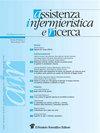[护士在分诊护理分配中的决策:一项定性描述性研究]。
IF 0.9
4区 医学
Q4 NURSING
引用次数: 1
摘要
。护士在分诊编号分配中的决策:一项定性描述性研究。鉴于提高急诊科(ED)护理质量、患者满意度和安全性的重要性,分析护士在分诊过程中如何做出决定可能有助于医疗机构开发有效和安全的急诊科,并支持医护人员。因此,本研究旨在探讨在分诊过程中影响护士决策的因素。方法采用描述性定性方法,对20名护士进行两个焦点小组的内容数据分析。结果影响护士在分诊过程中的决策并影响优先级代码分配的因素主要有三个方面:患者状况(症状体征、临床发展不良风险、虚弱状况的存在)、组织环境(患者流量、与医务人员的关系、压力环境、组织支持)和护士经验(类似情况的经验、直觉、责任负担)。护士倾向于平衡遵守协议与适当的响应急诊科,并倾向于寻求同行的反馈关于优先代码分配。结论创伤是一个复杂的过程,由许多因素组成,是由持续变化的偶然情况引起的。这些因素在一个不断影响决策的过程中相互交叉。本文章由计算机程序翻译,如有差异,请以英文原文为准。
[Nurse decision making in triage cose assignment: a qualitative descriptive study].
. Nurses' decision making in triage code assignment: a qualitative descriptive study. INTRODUCTION Given the importance of improving Emergency Department (ED) quality of care and patient satisfaction and safety, analyzing how nurses make decisions in the triage process may help healthcare organizations in developing effective and safe EDs and in supporting healthcare staff. The present study was therefore conducted to explore factors that contribute to nurses' decision-making in the triage process. METHODS Two Focus groups with 20 nurses have been conducted and content data analyses performed following a descriptive qualitative approach. RESULTS Three main aspects tend to affect nurses' decision making in the triage process and therefore influence priority code assignment: the patient's condition (signs and symptoms, risk of adverse clinical evolution, presence of frailty conditions), the organizational setting (patients flow, relationship with medical staff, stressful environment, support from the organization) and the nurse's experience (experience with similar situations, intuition, burden of responsibility). Nurses tend to balance adherence to protocols with appropriate responsiveness of the ED department and tend to seek peer feedback regarding to the priority code assigned. CONCLUSIONS Triage is a complex process, consisting of many factors, resulting from contingent situations that vary continuously. These elements intersect in a process that continuously tends to affect the decision.
求助全文
通过发布文献求助,成功后即可免费获取论文全文。
去求助
来源期刊
CiteScore
1.30
自引率
18.20%
发文量
24
审稿时长
>12 weeks
期刊介绍:
Assistenza Infermieristica e Ricerca (AIR) è una rivista scientifica che si propone l''obiettivo di promuovere e sviluppare il confronto sulle conoscenze che hanno un impatto sulla pratica, sulla formazione e sulla direzione dell''assistenza infermieristica.

 求助内容:
求助内容: 应助结果提醒方式:
应助结果提醒方式:


